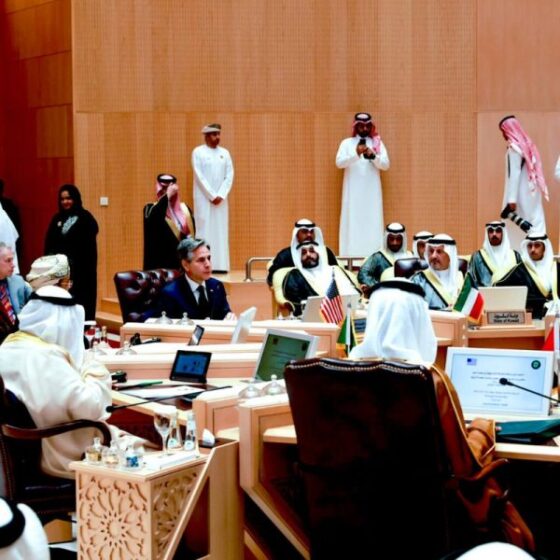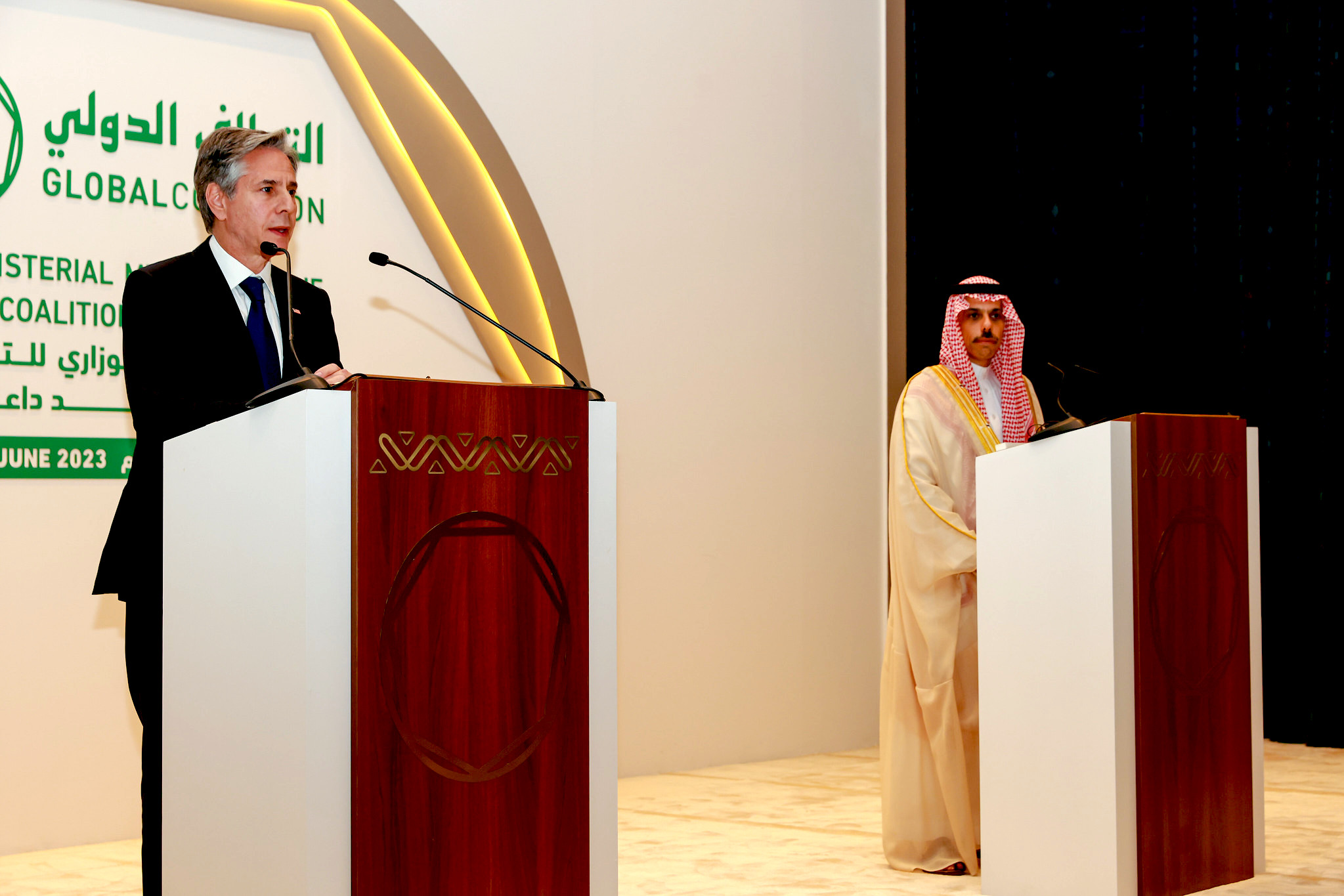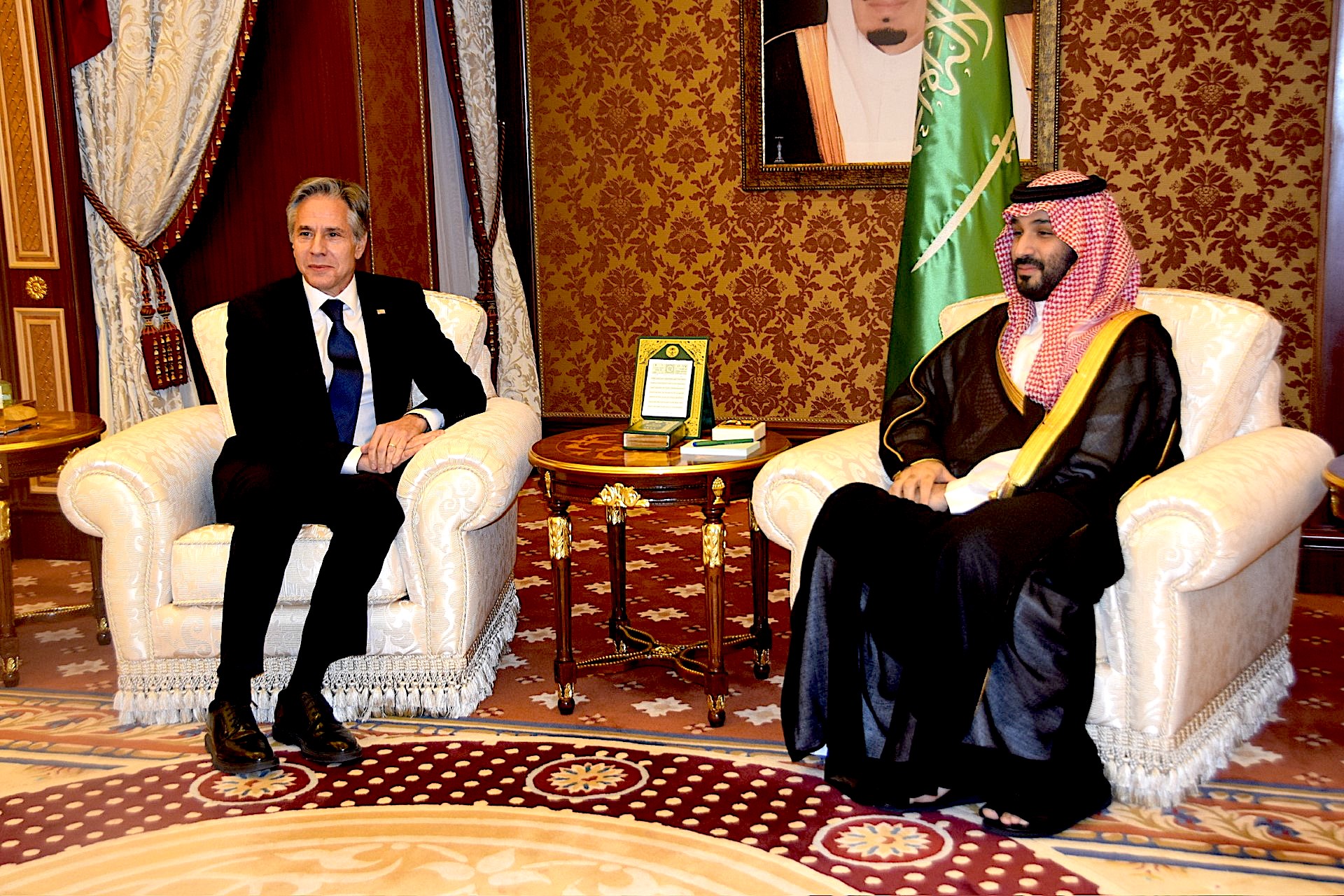
Developments throughout Secretary of State Blinken’s check out to Saudi Arabia fit with growing speculations about the Gulf Cooperation Council ending up being more autonomous of the U.S., composes Abdul Rahman.
By Abdul RAHMAN
U.S. Secretary of State Antony Blinken concluded his three-day check out to Saudi Arabia last Thursday. He was the second leading U.S. official to visit the kingdom in less than a month, after National Security Consultant Jake Sullivan.
His see was commonly seen as a desperate effortby the Joe Biden administration to hang on to its “closest ally” in the West Asian region.
Before Blinken started his trip, he had actually specified that normalization of Saudi-Israel relations was one of the top priorities of his government.
However, reportsindicate that Blinken not only failed to get any assurance from the Saudis on that front, however needed to concede some vital ground on considerable local concerns.
During his tour, Blinken consulted with Crown Prince Mohammed bin Salman on June 6, went to a Gulf Cooperation Council foreign ministers’ satisfy in Riyadh on June 7 and a meeting of a so-called International Coalition to beat ISIS on June 8.
AIPAC Speech Hours Before Departure
Hours before he took a trip to Saudi Arabia, Blinken addresseda meeting of the American Israel Public Affairs Committee (AIPAC), a pro-Israel lobbying group in the U.S., declaring that the Biden administration “has a real national security interest in promoting normalization between Israel and Saudi Arabia.”
He also noted that there are no genuine potential customers of a two-state solution in the future which his government will not push for it.
A couple of days later, on June 8, prior to leaving Saudi Arabia, Blinken addressed an interview in Riyadh jointly with Saudi Foreign Minister Prince Faisal bin Farhan, where he reiterated his federal government’s resolve to work for Israel-Saudi normalization.
However, Blinken was opposed by Faisal bin Farhan who pointed outthat “normalization of ties with Israel will have restricted benefit without a pathway to peace for the Palestinians.”

Blinken with Saudi Foreign Minister Faisal bin Farhan at a press conference in Riyadh on June 7.(State Department/Hisham Mousa)Previously, Blinken wound up
committing to work for the resolution of the dispute in Palestine and the production of a Palestinian state along the 1967 borders in a joint declaration provided a day after his meeting with the GCC foreign ministers. The statement, without naming Israel, underlined
“the requirement to refrain from all unilateral measures that weaken a two-state service and escalate tensions, to preserve the historic status quo in Jerusalem’s holy sites. “2 of the GCC members, Bahrain and the U.A.E., have currently”
normalized “their relations with Israel under the so-called Abraham Accords mediated by the U.S. The statement indicated that the U.S. may have yielded vital geopolitical ground on other problems as well. For
example, while it raised the problem of”freedom of navigation and maritime security in the region, “hinting at declared Iranian hazards, it welcomed the restoration of diplomatic relations in between Iran and Saudi Arabia in a turnaround of the U.S. earlier careful tone. Supporting Peace in Yemen Blinken with Saudi Crown Prince and Prime Minister Mohammed bin Salman in Jeddah on June 7.(State Department/ Zinna Senbetta)The statement also supported the ongoing peace efforts in Yemen and revealed the requirement for an inclusive intra-Yemeni political procedure. This is in spite of the truth that the Biden administration has actually preserved that the Houthis are Iranian allies and the war in Yemen is a proxy war. Succeeding U.S. federal governmentsbecause
Barack Obama have actually offered billions 
of dollars of weapons to Saudi Arabia and its coalition partners to be used against the civilian population in Yemen. In another substantial development
, the U.S. seems to have softened its objections to Arab nations ‘stabilizing their relations with Syria. The joint statement revealed assistance for the Arab nations’ “efforts to solve the [Syrian] crisis in a step-for-step manner.” The statement repeated that peace in the nation need to be on the basis of U.N. Security Council resolution 2254( 2015)and revealed commitments to Syria’s unity and sovereignty. This is regardless of some GCC countries, such as Qatar and Kuwait– close allies
of the U.S.– expressing their dissent at the normalization with Syria. The U.S. had previously specified that the U.S. does not”support normalization with Damascus”or “others stabilizing this.”The outcome of Blinken’s see to Saudi Arabia is similar to the outcome of President Joe Biden’s visit to the Kingdom last year when he failed to convince MBS to increase oil production to ease international costs. It suits growing speculations about the GCC ending up being more autonomous and no longer toeing the U.S. line. Peoples Dispatch through consortiumnews.com

